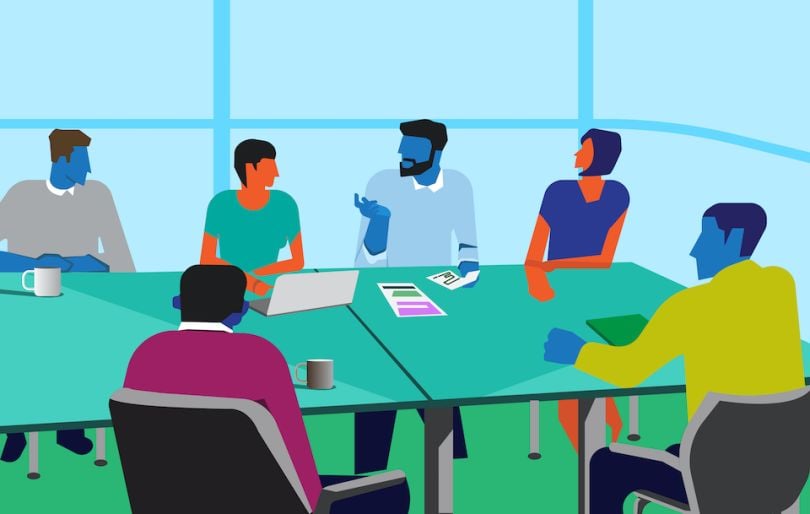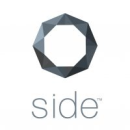
Mentorship can take many different forms, but the outcome remains the same: long-term benefits, mentees, mentors and their overall teams. For engineering teams, initiatives like onboarding buddies, pair programming and code reviews can quickly hone a mentee’s skills while giving mentors valuable leadership experience.
We spoke to three San Francisco-area tech leaders — a CTO, a VP of engineering and a senior engineering manager — who said that regardless of the method, mentorship starts when leaders foster a culture of professional growth across the team. Hear more about the day-to-day practices and principles these leaders adhere to that create growth-driven cultures for their dev teams.
At real estate brokerage Side, VP of Engineering Ryan Smith gives his direct reports agency in how they solve challenges. He said his job is to help devs see problems from all angles while encouraging them to find solutions that work best.
How does your team foster a culture of growth?
Everyone has something to contribute and we encourage everyone to speak up, regardless of their level and years of experience. One of our engineering principles is, “Value everyone’s ideas: Every engineer has a responsibility to voice their opinion and listen to others.”
We foster a culture of open, honest and direct communication. We also strive to create a culture of learning and growth culture where engineers support and mentor each other regardless of seniority. And engineers are encouraged to share their work with the team during the demo days we host each week.
How do you serve as a mentor to members of your team?
I have always believed that I am here to serve the team and foster an environment where I am just another member of the group. I often encourage team members to ideate a solution and I act more like a coach to help them think through a solution rather than give them my answer first. I will also play devil’s advocate to help them think of challenges from different perspectives to help them hone in on the best possible solution.
I am here to serve the team and foster an environment where I am just another member of the group.”
A recent example of this philosophy in action was when we put together a business case to look at a new architecture for the next iteration of our platform. The team went off on their own through many iterations. After I provided a few reviews, we honed in on the right messaging to best articulate our findings.
What formal mentorship programs does Side offer and what does this program entail?
We recently developed a mentorship program where we pair a more seasoned engineer with a mid-level dev. We want to help the mid-level engineer unlock their potential and put them on a path to become a senior dev. Pairs work together for at least a year in order to build a strong partnership and foster a direct line of communication. We’ve had four pairs of engineers participate and we’ve already seen great results in employees’ personal and technical growth. We are also seeing the more seasoned engineers becoming better at communicating effectively with different learning styles and growing into stronger mentors.
Feedback is an important part of how CTO Ramana Satyavarapu builds a culture of growth at Finix, a payments facilitator for SaaS companies. He provides candid feedback on topics like communication and planning, and devs share feedback with each other through “blameless retrospectives.”
How does your team foster a culture of growth?
We advocate for every Finixian to have a mentee and a mentor, regardless of their title. Every agile team has a tech lead who is not a people manager but rather the person responsible for coaching, mentoring and advocating best practices for the team. This setup encourages healthy mentorship and development independent of the reporting structure.
The engineering team has a lot of bottom-up knowledge-sharing activities like hackathons, sprint retrospectives, playbooks and lightning talks. An exercise I especially appreciate is our “blameless retrospective,” where we celebrate successes and openly discuss our failures so we learn as a team. These objective conversations are invaluable and promote connectedness and transparency within the organization.
How do you serve as a mentor to members of your team?
Leading by example is the best way to promote the importance of mentorship. I meet with an executive coach and a mentor every week, setting the standard for an eagerness to evolve and continuously improve.
Leading by example is the best way to promote the importance of mentorship.”
I mentor my team in areas like written communication and planning. For example, I provide contextual feedback on our weekly memos meant to improve the writer’s clarity of thought. I also mentor our managers to enhance how they think about planning, particularly when it comes to working with abstraction and collaborating across multiple teams. During our product planning, I was able to help reflect and refine the thoughts of our product managers, streamline their ideas and deliver a viable roadmap through weekly mentoring sessions.
What formal mentorship programs does Finix offer and what does this program entail?
We realize the importance of soft skills to create a high-performing and culturally healthy organization. It starts with giving and receiving positive and developmental feedback and viewing feedback as a gift. We enrolled the company in a program with Leaders in Tech, where every Finixian learns to give and receive constructive feedback, building a strong foundation of trust.
John Pfeiffer said he strives to provide his team with many opportunities to learn from him and one another. The senior engineering manager at the genomics platform Helix said there are a number of opportunities for devs to knowledge-share with colleagues and receive direct mentorship from leaders.
How does your team foster a culture of growth?
Our team has monthly “engineering brown bags” where one team member shares a presentation and Q&A on topics ranging from “mindful communication for engineers” to “Git: How it works.” Our wiki contains links to each presentation for later reference.
We also set aside a two-hour block twice a week for “collaborative coding.” We have an open video conference where anyone from engineering can ask about a coding issue they’re running into, like best practices on a pull request or an issue with CI/CD.
We have an open video conference where anyone from engineering can ask about a coding issue.”
How do you serve as a mentor to members of your team?
I have weekly one-on-ones with my direct reports where they can ask for assistance on any topic and I can provide mentorship. Maybe they’d like to review their architecture design proposal or they want to work through the big-picture system data flows for a part of the infrastructure they haven’t worked on before. I’m also available to my team for ad-hoc screen-sharing when they’re doing on-call production rotations since I may have already encountered a problem they’re experiencing.
How has a mentorship culture helped the Helix dev team grow?
Mentorship culture has helped our team grow immensely. We have women and men who started their software engineering careers with Helix. They come from non-computer science backgrounds like life sciences or bioinformatics and they’re able to learn from our senior team members who have decades of combined experience in different areas of expertise. We empower our engineers to ship their projects autonomously, a process that wouldn’t be possible without the mentorship of our experts in DevOps or quality assurance or software architecture.











